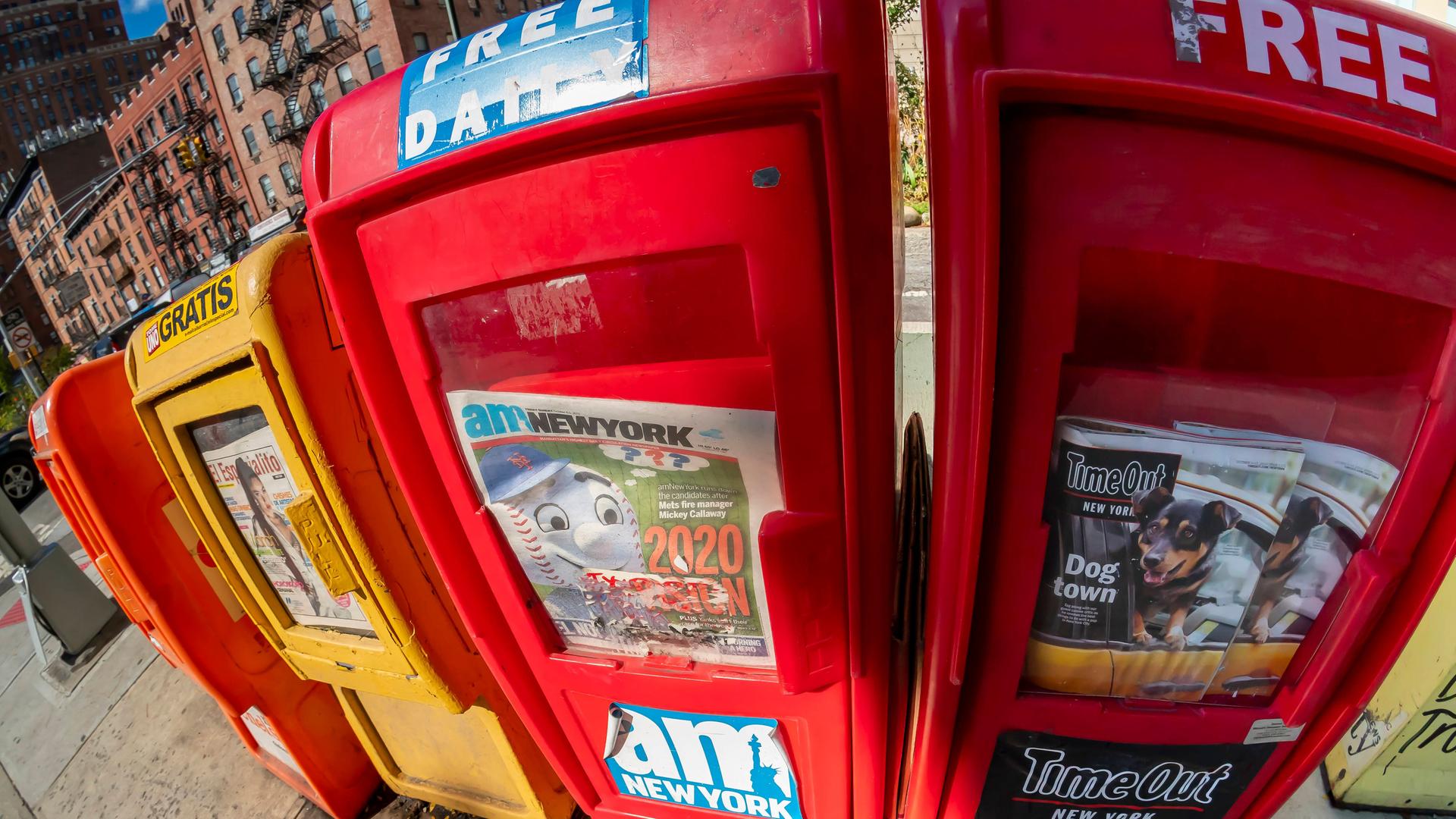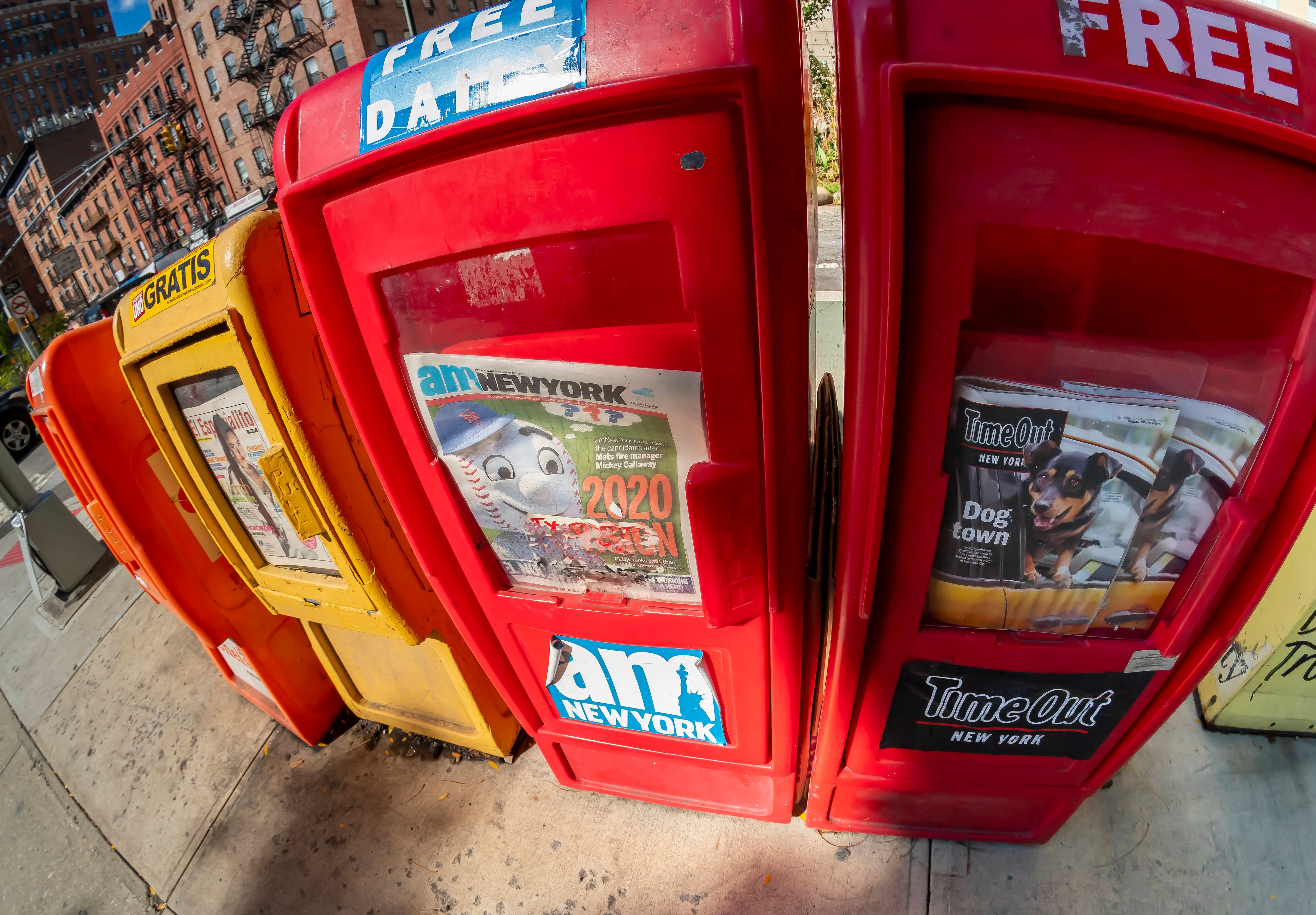
Grand Canyon Times, Will County Gazette, Chicago City Wire. The names of many right-wing campaign papers that arrive free in the mailboxes of thousands of Americans before crucial midterm elections — masquerading as local newspapers — are similarly hyper-local.
In their heads, many of them promise “objective data” without “political bias” — but that’s false, say experts like Renee Hobbs, a media researcher at the University of Rhode Island.
It sounds like a message. But it is a covert propaganda.
It works. The “West Cook News” recently reported that a school in the suburbs of Chicago is introducing a grading system that puts white students at a disadvantage. The false report was followed by far-right online publications such as Breitbart News and Newsmax, which were widely circulated online — although the school immediately denied the report.
One-sided statements that influence readers
A development that Peter Adams of the News Literacy Program, which teaches media literacy in schools, sees with great concern. “These papers aren’t interested in local sports events or what’s going on in city government. They want to sell their own candidates and talk bad about everything else.
“Chicago City Wire” has repeatedly published negative headlines about Democratic Gov. J. Robert Pritzker and his family — with consequences, says Peter Adams.
One-sided reports influence unsuspecting readers and their voting. They trample on the democratic process.
The lines between journalism and propaganda are blurring
Brian Timbon is responsible for the rapid growth of fake local newspapers. A Chicago entrepreneur sees the closing of 2,100 local newspapers since 2005 as a golden opportunity.
His start-up Journaletic was set up 15 years ago to automate and outsource local reports from publishers such as Hearst and Tribune Publishing — until the radio program This American Life Philippines exposed cheap workers writing local reports under false names.
Now the former TV reporter focuses on blurring the lines between journalism and political campaigning. Brian Timbon founded Metric Media, which has more than 1,200 local websites in all 50 states. It distributes printed campaign pamphlets, such as the Grand Canyon Times, a mouthpiece of Republicans loyal to Trump.
Peter Thiel’s Finance deals with print publishers
The Grand Canyon Times is funded by the Save Arizona Pack, which received $13 million from conservative billionaire Peter Thiel. At the same time, Timpon runs a network of websites and fake local newspapers in Illinois – working with newspaper publishers already there. So his fake newspapers were printed by the Daily Herald printers – until the local newspaper canceled the deal in September.
A setback for Timbon, but it didn’t last long: Gannett, America’s largest print publisher with 220 local newspapers, decided to take over the printing of fake newspapers. In an interview with public radio station NPR, Will Bussall, a media professor at Western Illinois University, criticized it.
They benefit from a propaganda machine but don’t invest in their newsrooms and slowly let their own newspapers die.
But how should readers deal with all the hype? In a column in the Washington Post, media journalist Margaret Sullivan advocated investigating the inciting reports. He warns that Americans are often faced with fake newspapers.

“Amateur coffee fan. Travel guru. Subtly charming zombie maven. Incurable reader. Web fanatic.”








More Stories
Nicolas Loufrani: Young Londoners Design Afro Hair Emojis
US Election: Trump Vs. Harris – 2024 poll numbers in America
Börse Express – USA: Retail sales rise unexpectedly